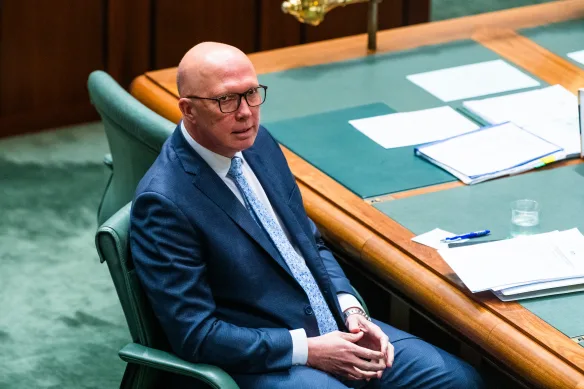

News reports suggest that the long arm of Donald Trump is set to influence Peter Dutton’s Opposition and possible future government, with the news that like the new administration in the White House, the Coalition is promising to be a friend of cryptocurrencies.
The AFR’s James Ayers reports that Luke Howarth, the Coalition’s financial services spokesman, told a group on Wednesday that supporting the crypto industry and the use of blockchain technology was a “longstanding priority for the Coalition, and it will continue to be a priority under a Dutton government”.
That might be true, but it was a little known priority. But the question is why? Perhaps these are some of the reasons:
In an intriguing development, Ayers revealed that “Financial Services Minister Stephen Jones met with industry players in December [and] was unable to commit to timing for the [crypto] bill, according to two people involved in those discussions.”
And the plot thickened when Jones announced he wouldn’t stand for re-election! The Minister has been under pressure to make a wide range of changes linked to the financial services sector and had largely failed to impress, which might imply that his colleagues weren’t on board with a number of his ideas that the industry supported.
Peter Dutton is not doing a Donald Trump for political purposes. Rather, the Coalition leader is simply following suit with the US President and has got on board with an international movement that has been demanding more regulation and acceptance of cryptocurrency. However, as he tends to do, President Trump has embraced his pet pursuit with a little more enthusiasm than most.
Rachel Lucas, an analyst at crypto exchange BTC Markets, told Ayres the following: “It is vital given what is happening globally, especially in the US, that Australia creates appropriate and proportionate legislation, as a clear regulatory framework is essential to foster innovation while ensuring consumer protection and market integrity.”
Luke Howarth is concerned that the Australian Securities and Investments Commission (ASIC) isn’t giving crypto a fair go and should be awaiting rules for the sector to be handed down by Treasury. While that might be right, ASIC is supposed to protect investors and, to date, governments haven’t given strong leadership on how the crypto industry should be regulated.
Given the increasing popularity of cryptocurrency investing, we need the best protection possible. By the way, it’s not just for young people, as I have 70-year old financial planning clients who want to buy bitcoin and I want them to have fit-for-purpose regulation of this pretty risky form of speculation.